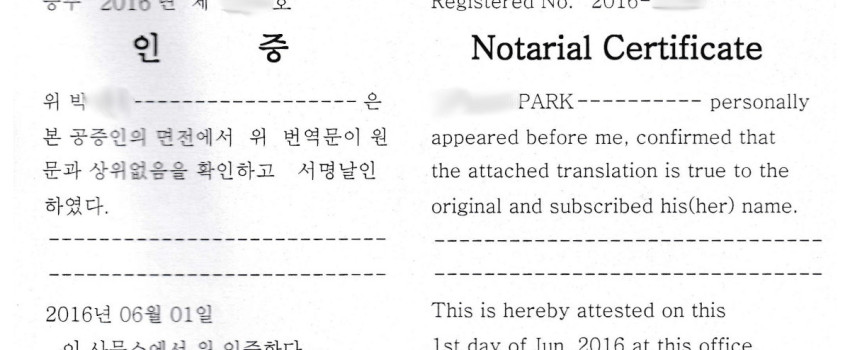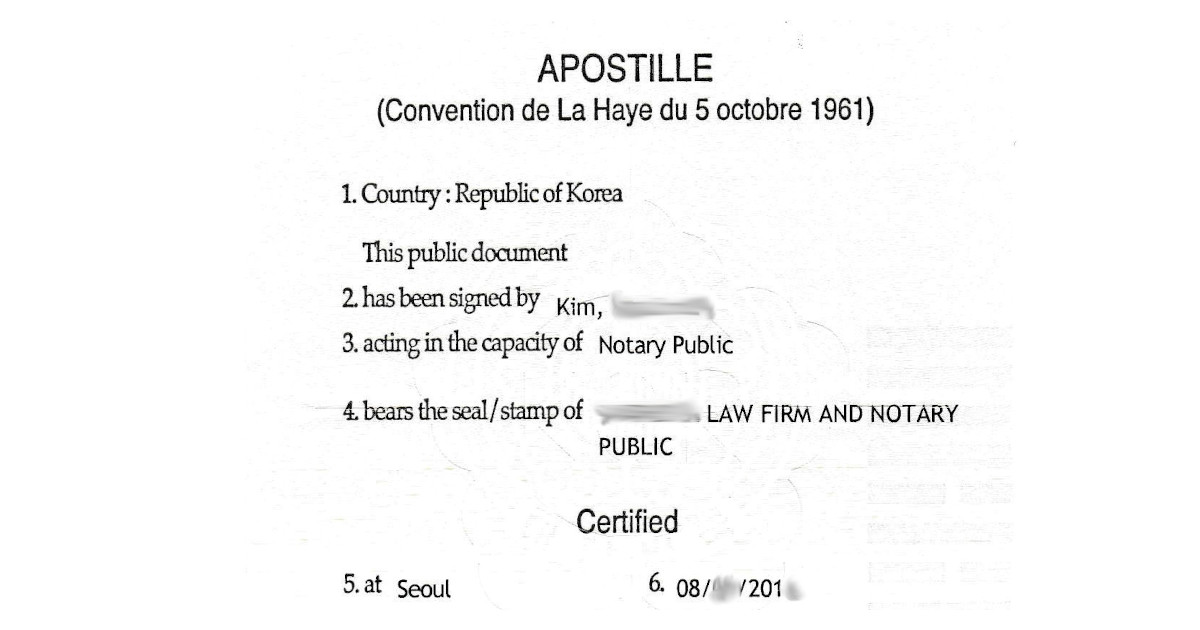Notarized translation plays a crucial role in South Korea by validating the accuracy of translated documents. This authentication process facilitates effective communication across languages when translating to and from Korean.
Notarized translation involves having a local Korean translator provide a translated document that is then verified by a notary public in South Korea. The notary's seal and signature confirm the translation's precision and legitimacy. This prevents fraud and enables legal recognition both domestically and internationally.
Translating from Korean
When translating documents from Korean into foreign languages, only experienced translators fluent in Korean and the target language can perform notarized translation. Their expertise ensures proper meaning is conveyed while meeting all legal and linguistic requirements.
The translator presents the finished translation to a South Korean notary public. The notary verifies the translator's credentials, witnesses the signing of an affidavit of accuracy, and stamps the documents. This validates that the translation accurately reflects the original Korean documents. Please check the the certfication below.
Common documents needing certified translation from Korean include academic transcripts, birth certificates, marriage certificates, patents, contracts, and legal notices.
Translating into Korean
The process is similar for notarized translation into Korean from foreign languages. The translator must be fluent in Korean and the source language to produce an authenticated translation.
The Korean notary verifies the translation's precision through affidavit and signature. This legitimizes foreign documents like financial records, decrees, or affidavits when translated into Korean.
Apostille Certification
For enhanced international authentication, documents translated in South Korea can receive apostille certification from the Ministry of Justice. This further validates the notary's credentials and the translation's accuracy.
You can learn more about Notarized Korean Translation Services here: Apostille and Documents Notarization in Korea
Please be aware that beside Korean notarized translation, there is also Certified Korean Translation, which is done by licensed Korean translators according to South Korea's Licensed Administrative Agent Act. Certified translators have passed exams proving their translation skills. Their translations do not require notarization and are recognized as verified on their own. Common documents needing certified translation include academic transcripts, birth certificates, and contracts.
You can learn more about Certified Translation in South Korea here: Certifited Korean Translation Services
Do You Need Notarized Translation in Korea?
Call Us: +82-70-5038-4101, Send an Email or Leave us a Message in the form below. We will be happy to answer your questions!



